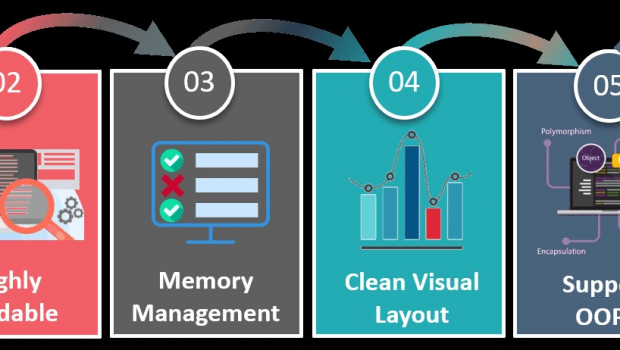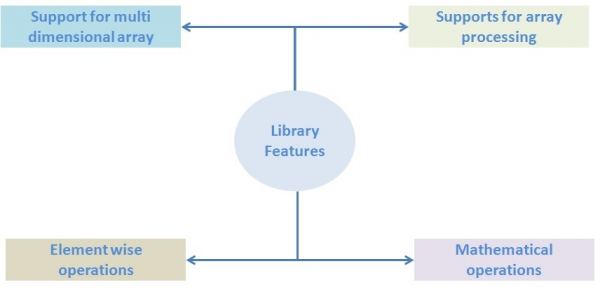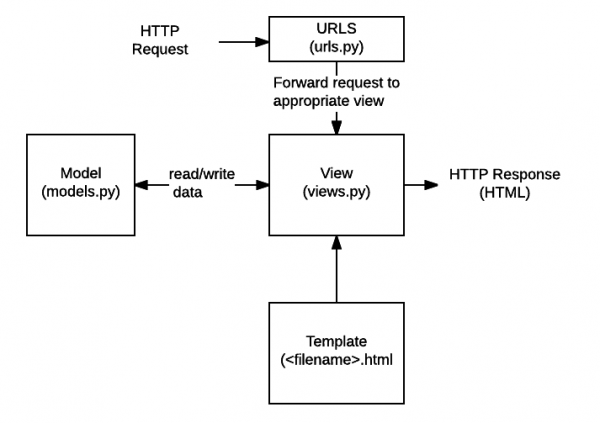Django vs Flask: Which is better to go for?
The success of any software project depends upon the selection of the programming language which is suitable for that software or application. Hold on! Equally important is the contribution of a particular framework of that language which helps the developers to work smoothly on that software without wasting much time on the whole technology.
In this piece of article I am going to pick up two of the most important frameworks of Python: Django and flask and will do a clear comparison of both in order to reach the best conclusion.
Before we dive too deep to do a comparison, let’s first find out why Python language is so important and famous that we have taken initiate to discuss on its frameworks. It is mandatory to know little about the Python language.
Why Python is famous?
Among various programing languages, here we are talking about one of the most trendy languages that is Python because it is indeed one of the most famous programming languages which has been considered to be the most suitable language for technologies like AI and Machine learning development because its coding structure is easy to understand and this is the main reason it can handle the complex algorithms of AI.
The simplicity of Python is what makes it so popular!
Let’s look at some of its FEATURES:

Python is much better in comparison to other languages in terms of developing code as Python is having shorter codes that can be managed easily. Moreover, it is very easy to manage any data type in Python. Here is an example in order to prove this:
Find the below given image where you can see that the data type of ‘a’ is string and the datatype of ‘b’ is an integer. Here the advantage is that there is no need to manage the data type. It is already managed by Python.

Python is one of the well known open-source programming languages which is developed by using a community-based model. So, because of this reason that is open-source programming language, it supports multiple platforms, additionally it can be run on Windows and Linux environments.
Talking about the libraries of the Python, I would like to share an image regarding how Python is contributing in this field. Find the below-given image:
In a nutshell, it could be said that as Python has been considered one of the simplest languages with having simple coding structure makes it so famous among the developers.
Now, let’s move forward to do an accurate comparison between Django and Flask. But before that let’s find the role of these two frameworks individually.
What is Django?
Django is known as one of the most famous Python full stack Web framework. The process of creating website with it is so easy. Django is responsible for eliminating most of the irritating parts in Web Development. It is free and open source Web framework with an excellent documentation.
Django Code Style
Django Web application
Let’s find an image which is a description of Django coding style:
What is Flask?
Flask is yet another most frameworks of Python which provides you with tools, libraries and technologies that allow you to build a web application. This web application may consist of web pages, a blog, a wiki or go as big as a web-based calendar application or a commercial website.
Flask is very easy to use that it can help beginners to go for it because there is little boilerplate code for getting a simple app up and running.
For example, here is a valid “Hello, world!” web application with Flask:

The above code shows “Hello, World!” on localhost port 5000 in a web browser when run with the python app.py command and the Flask library installed.
If you you use Django web framework for this “Hello World”, then it would involve significantly more boilerplate code.
Flask was written after some years of Django and therefore learned from the Python community’s reactions as the framework evolved. Jökull Sólberg wrote a great piece articulating to this effect in his experience switching between Flask and Django.
A Quick Comparison
Now let’s start comparing Django and Flask on the basis of some parameters and know which is much better if you want to choose it for software development:
Well, I would like to start their comparison with their history then will move further with other parameters. So first of all the first parameter comes:
History and growth
Django is famous for longer time but it was first released in 2005.
On the other hand, Flask was released in 2010 after django and became more popular in january 2017.
Talking about the popularity of the Django and Flask, I would like to mention that according to StackOverflow, people have asked 2631 StackOverflow questions about Django and 575 for Flask. Both frameworks are growing steadily in popularity, as can be seen by the number of StackOverflow questions about each in the image below
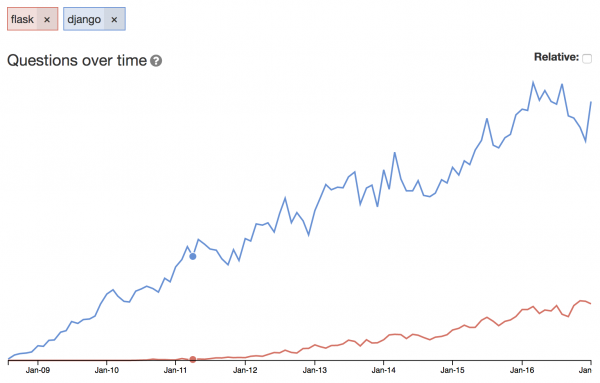
Type of Web Framework
As it is already mentioned that Django is a full-stack Python web framework. And more importantly needed to mention that Django is developed based on batteries included approach. This batteries included approach makes the web development process easier for the developers like user authentication, URL routing and database schema migration. Apart from this, you can do custom web development as Django provides built-in template engine, ORM system, and bootstrapping tool.
Now talking about the Flask, it could be said that it is a simple, lightweight, and minimalist web framework. It does provide some of the features which we can get by Django. But still it is considered simple to understand for the developers.
Database
Django consists of simple and effective ORM (Object Relational Mapping) which is really helpful in supporting a large number of relational databases out-of the-box and these are: SQLite, PostgreSQL, MySQL, and Oracle. ORM is really helpful in offering support like generating and managing database migrations. Apart from this, it is very easy to create forms, views, and templates that are based on the data models, which is perfect for your typical CRUD web applications. We can ignore its some of the shortcomings as it is really helpful as well understandable for the majority of the web applications.
On the other hand, Flask does not predict anything about how data is stored, but still there are a large number of libraries and extensions available to help with that:
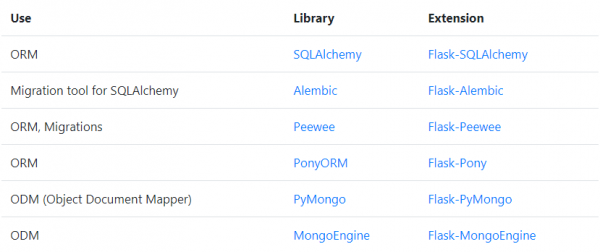
In a nutshell, it could be said that if in case you are using a relational database, here starting with Django will make your work easier as it has a built-in ORM and migration management tool. But in case lie you are using a non-relational database or planning of using a different ORM like SQAlchemy, here in this case you will have to make certain efforts with Django at every step of the way. Apart from this, here in this case, you will not get any kind of an advantage of the Django Admin, model forms, or DRF model serializers.
Similarly on the other hand, If you making use of Flask, here you can get freedom to pick and choose the ORM (or ODM) that works best with your application. Well, it is ok that you are getting freedom but still, at the same time, you will get the number of errors here as you are managing all these piece yourself.
Ease of Documentation and Navigation
Flask provides extensive documentation which is really helpful in covering deployment, installation, QuickStart instructions, and detailed tutorials. Installation of Flask with pip is easy with the help of making use of Python’s package.
$ pip install flask
The above-given command installs Flask with its essential packages. It is very easy to run codes on Flask for instance, reflecting “Hi Welcome”. Here you need to create an instance of the Flask class, which is followed by a route that shows the “Hi Welcome” string”.
from flask import Flask
app = Flask(__name__)
@app.route("/")
def hi_welcome():
return "Hi Welcome"
if __name__ == "__main__":
app.run()Talking about the documentation of Django, it could be said that its documentation is much better in comparison to Flask. Django can be installed quickly using pip as well.
$ pip install Django
The use of running code in Django helps in building in-built command in order to create a project and another command is used for app creation. Its start-up commands are easy to handle as it combines ready-to-use directory structure.
Speed of Development
Django frameworks offers you fast speed of development for difficult web applications. As it is already told that it consists of full features, so for it, this is possible to provide all the necessary tools for implementation. Keeping in consideration this fact of Django framework, you are required to hire python developer in order to enjoy the benefits of Django framework.
On the other hand, Flask does not provide full features but it is considered simple so it becomes easy for the experienced developers to finish smaller applications within short timeframes.
One of the major advantages of the Django framework is that it is having an active community which is meant to help by providing solutions in order to scale your app or make your job easier with useful content.
On the other hand, it is a little difficult to find information on Flask as Flask community is not as big for a now.
Template engine system
Moving towards the discussion of the template engine, it could be said that Flask is developed with the help of making use of template engine. This template is known to be very design-friendly that it is able to help developers to simulate dynamic web applications with the assistance of an integrated sandboxed environment. Jinja2 templates contain variables as well as tags.
Here is another key feature of Flask template which is template inheritance. Find below some of the commonly used examples of Jinja2 syntax:

On the other hand, Django uses a built-in template engine, which allows developers to define the web application’s user-facing layer effortlessly. Apart from this, it allows developers to use the Django template language (DTL) which helps in writing template in order to create custom user interface development. Templating syntax in Django includes:
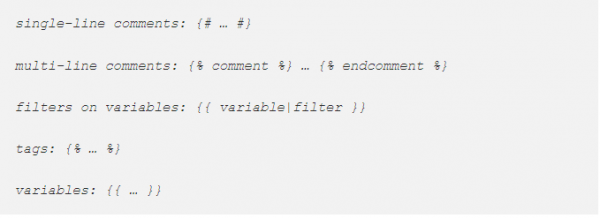
Final words
So it could be said that both django and Flask are having their own features of development process. We can see from the above-given parameters that Flask is simple to use but still Django wins on the whole because Django provides more development features in comparison to Flask.
So, it is suggested that for the best experience of software development, you are required to contact best web development service in India who keeps a full knowledge of Django framework up to the brim.

